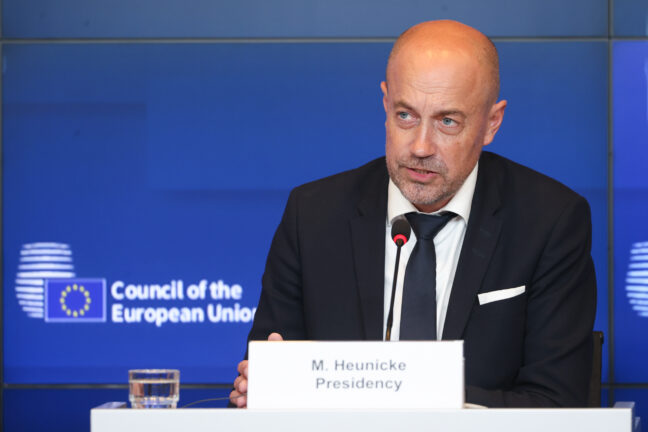EU equality ministers are urging a decisive shift in how violence against women and domestic abuse are addressed, placing prevention, early detection, and intervention at the core of future policy.
The Council’s newly adopted conclusions on Friday highlighted a vital but often overlooked force in tackling abuse: the role of bystanders. Ministers called on EU countries to do more to empower citizens to step in safely and support victims before violence escalates.
“We’ve agreed to strengthen efforts to stop violence before it starts,” Magnus Heunicke, Denmark’s Minister for Environment and Gender Equality, said. “Breaking the silence depends on all of us — especially those in a position to notice what others don’t.”
Education and awareness campaigns are seen as key tools to ensure that individuals are able to recognise abuse and feel safe intervening. The Council stressed the importance of societal support so that witnesses to abuse can act — or report — without fear of retaliation or legal uncertainty.
You might be interested
Underreporting
While most women who experience violence do tell persons close to them, only 20 per cent or so reach out to social or healthcare services — and just one in eight report incidents to the police. The latest EU Gender-Based Violence Survey (2024) underscores the scale of underreporting and the need to close the gap between informal disclosure and formal intervention.
To address this, ministers are calling for more public education on how to seek help or offer it — and for authorities to ensure that people feel protected when they do. Bystanders often hesitate to act due to uncertainty about consequences or lack of knowledge about how to help.
No one left behind
While women and girls face the highest risk of gender-based violence, the Council on Friday acknowledged that men and boys can also be victims — and may struggle to seek help due to stigma. Ministers urged both EU and national policymakers to challenge stereotypes and ensure support is accessible to all, regardless of gender.
Children living in households affected by domestic violence were also highlighted as direct victims, not just witnesses. Exposure to abuse can cause lasting psychological and physical harm, with increased risk of future violent behaviour. The Council urged member states to prioritise child protection in any environment where domestic violence is present. The Council’s core message is clear: stopping violence early on, empowering communities, and ensuring that no one at risk is left unsupported.











